Vladimir Kagan: A Timeline of His Life and Legacy
“I’m supposed to be a minimalist – I’m a maximalist. So I say, ‘Do as I say, not as I do,” -Vladimir Kagan
Born: August 29, 1927, Worms, Germany
Died: April 7, 2016, Palm Beach, FL
Nationality: German-American
Education: Columbia University, Kendall College of Art and Design of Ferris State University, Art and Design High School
“VLADIMIR KAGAN IS ONE OF THE MOST IMPORTANT FURNITURE DESIGNERS OF THE 20TH CENTURY. FURNITURE DESIGNED BY HIM IN THE FORTIES, FIFTIES AND SIXTIES HAVE BECOME ICONS OF MODERNITY AND AN OBLIGATORY REFERENCE TO EVERY DESIGNER. HE IS THE CREATIVE GRANDFATHER OF A WHOLE NEW GENERATION OF DESIGNERS.”
– THE NEW YORK TIMES
Vladimir Kagan is one of the most highly-sought after designers. His work is respected, collected and they reside in the homes of only the most rich and famous- including Marilyn Monroe, Andy Warhol, Walt Disney, Tom Cruise, David Bowie and even the government of Venezuela. Let’s take a look at a timeline of his life and legacy.
About Vladimir Kagan
1927
Vladimir Kagan was born in 1927, in the small town of Worms, Germany.
Vladi with his sister Tanya and father Illi
Vladi and Tanya bathing in tubs as they weren't allowed in the public pool in Germany during the war
1938
Vladimir and his family immigrate to America to escape the Nazi regime.
The Family arrives to America with Aunt Mary
1946
Finding himself in a new, unrecognizable place, Kagan studies and graduates in 1946 from the School of Industrial Art, where he was an architecture major and goes on to study architecture at Columbia University.
1947
In 1947, Kagan joins his father Illi Kagan, a master cabinetmaker to assist in his woodworking shop. Later, Kagan is quoted, describing this time as 'deeply stimulating' and noted that some of the designs created in his youth became the keystones of his later work. The apprenticeship with his father taught him limitations but also possibilites for creating avant-garde designs.
In an interview, Kagan recalls his Father saying “‘Measure three times and cut once'; I would be of the school of cut three times and never measure."
Originally, inspired by the Bauhaus Movement, Kagan began focusing on clean and minimal lines, form follows function and less is more. This philosophy soon changed and his mission became focused on interpreting his century, not emulating those of the past. His new mantra became more is more, because who would ever want less? And he surely proved his point.
Kagan became invested in the needs of the user, creating countless drawings of the human body. His most iconic designs are inspired by human anatomy. Featuring swooping silhouettes within his chairs and sofas, which were influenced by the curvature of the spine.
1949
In 1949, Vladimir Kagan opens his first personal shop in New York.
1950
One year later, The Kagan-Dreyfus partnership begins with a showroom/store on 125 East 57th Street in New York City.
1947-1948
Kagan is commissioned to design the Delegate's Cocktail Lounge at the United Nations in Lake Success N.Y.
1949
Kagan introduces his first signature furniture collection called 'Tri-symmetric.'
In the same year, he also releases a collection of coffee tables with Alexandra Kasuba in-laid tiles.
1950
Kagan introduces the 'Sculpture Form' sofa
Then his first ‘Serpentine’ sofa and 'Savanarola' chairs were released.
1952
Kagan releases the 'Floating Seat' sofa model #176SC
Throughout the 50s Kagan releases various mosaic in-laid tile tables and lamps.
Kagan creates custom pieces for JFK TWA airport Saarinen terminal.
1953
the sculpted ‘Contour’ series is first produced by Kagan-Dreyfuss
1955
In 1955, Vladimir marries Erica Wilson, a needlework teacher from The Royal School of London. Their union would go on to blossom into a powerhouse of creativity, which propelled them to global fame and success.
They would spend their 56 years together, partnering creatively, traveling around the world and raising their three children - until her death in 2011.
in 1955, Kagan releases the mosaic in-lay table lamp
1958
Kagan introduces the 'Branch' coffee table, model # 5424, the 'Capricorn' series, an indoor-outdoor iron collection through W&J Sloan and a custom walnut and stainless steel cabinet.
1960
Kagan's partnership with Dreyfus dissolves.
During the 1960s, Kagan designs the 'Cloud' sofa for Directional, the 'Snail' coffee table, a custom walnut armoire cabinet.
1963
Kagan releases the 'Unicorn' sofa model U #522, 'Unicorn' chairs model U #522
1964
Kagan redesigns the Monsanto House of the Future at Disneyland, in California.
1966
Interior of the Melvin and Audrey Troy house in Sands Point, Long Island.
1967
'Roll Back' sofa model #6718
1969
'Erica' chaise
1970
The first 'Omnibus' collection is introduced.
'Lotus' chairs model #7001
Throughout the 1970s, Kagan releases many designs with lucite.
King-size bed with integrated nightstands, Jack Lenor Larsen fabric, 1970s
1971
‘Stalagmite’ floor lamp
1972
Vladimir Kagan at the Kagan Factory, Long Island City, Queens, NY.
Shortly after this photo was taken, On May 19, 1972, a fire destroyed Kagan's entire factory in New York.
He closes the factory and showroom and starts his new consulting firm: The Vladimir Kagan Design Group.
1980
Lacquered oak bar stool, 1980s
Custom Crescent bed, 1980s
The ultra-rare bed was acquired by Lenny Kravitz and is currently in his Brazilian home.
1997
Gucci uses the 'Omnibus' collection for all its 360 stores around the world.
2002
Kagan designs the lobby for the Standard Hotel Downtown in Los Angeles.
2006
A Custom commissioned bar inspired by the Chrysler Building in New York City as the owner ran a bank inside the building.
2016
Vladimir Kagan dies from a heart attack in Palm Beach, Florida at the age of 88.
Kagan's designs are fascinating and timeless. They're friendly, they embrace you and each other. You will notice that Kagan's chairs curve into their ottomans and His tables seem to nestle against his inviting sofas.
Or, if you can find an authentic pair of kagan sofas, (which we have many sets of - so you're in luck!) you can style them together. Each sofa has a different back style, one which wraps around one side and the other centralized. Having both styles together in the same room was the signature look that Kagan made popular - a beautiful way to creatively signify how two separate individuals, while different, can live harmoniously together.
Photo: brian shumway
His work is unlike anyone else before him, yet has been emulated time and time again by designers after him. This is why having an authentic design of Kagan's is truly a gift. One to be cherished and treasured until the end of time.
Photo: brian shumway
"His clients were luminaries in the world of art, theater, music and industry.
They included Marilyn Monroe, Xavier Cugat, Lily Pons, and Gary Cooper; Sherman Fairchild of Fairchild Aviation, Walt Disney, General Electric, Monsanto, General Motors, Prudential Insurance, and the Government of Venezuela."
Vladimir Kagan’s final collection is on display at Carpenters Workshop Gallery in New York. source
"In the 21st century, connoisseurs and museums are avidly collecting his designs today. Kagan’s furniture is in the private collections of Barbara Jacobson of the Museum of Modern Art, film director David Lynch, actor Dan Akroyd, the Spice Girls and David Bowie, Tom Cruise, Brad Pitt and Angelina Jolie, Courtney Cox, Demi Moore, Uma Thurman as well as the late artists Andy Warhol, Robert Mapplethorpe, Frank Sinatra and Violinist Isaac Stern. Fashion designers Tom Ford, Donna Karan, Giorgio Armani, Joseph, Roberto Cavalli, and Anna Fendi, Barry Diller, Diane Von Furstenberg, and many more are all Kagan collectors."
"His prize-winning designs have been published in books and magazines internationally and are in the permanent collections of the Boston Museum of Fine Arts, V&A London, the Vitra Design Museum and Die Neue Samlung in Germany, the Brooklyn Museum, the Cooper Hewitt Museum, San Francisco Museum of Modern Art, Pasadena Art Institute, Baltimore Museum of Fine Arts, Chicago’s Athenaeum and The Metropolitan Museum of Art."
source: vladimirkagan.com
"There's a seductive beauty to Vladi's designs, with their lush textures and sensual curves. It's funny, but I've always felt like Vladimir's furniture was having a conversation in a room even when no one was in it."
- Margaret Russell, the Editor-in-chief of Architectural Digest and very close friend of Vladimir Kagan
More Works
Interior Design featuring Vladimir Kagan Design
As seen on @elledecor, design by @BMA.Architects, interior design by @foxnahem and photographed by @petermurdock_photo
PLEASE NOTE* WE HAVE NOT INCLUDED EVERY WORK OF VLADIMIR KAGAN’S, WE URGE OUR READERS TO DO THEIR OWN INDEPENDENT RESEARCH INTO ALL OF HIS DESIGNS.
DISCLAIMER: THE MILLIE VINTAGE DOES NOT OWN ANY RIGHTS TO THESE PHOTOS. PLEASE NOTE THAT ALL IMAGES AND COPYRIGHT BELONGS TO THE ORIGINAL OWNERS. NO COPYRIGHT INFRINGEMENT INTENDED.





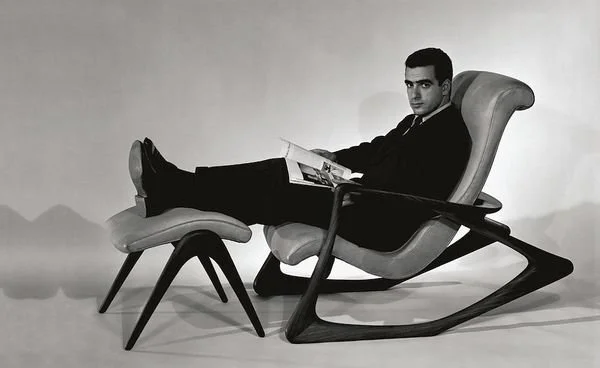






























































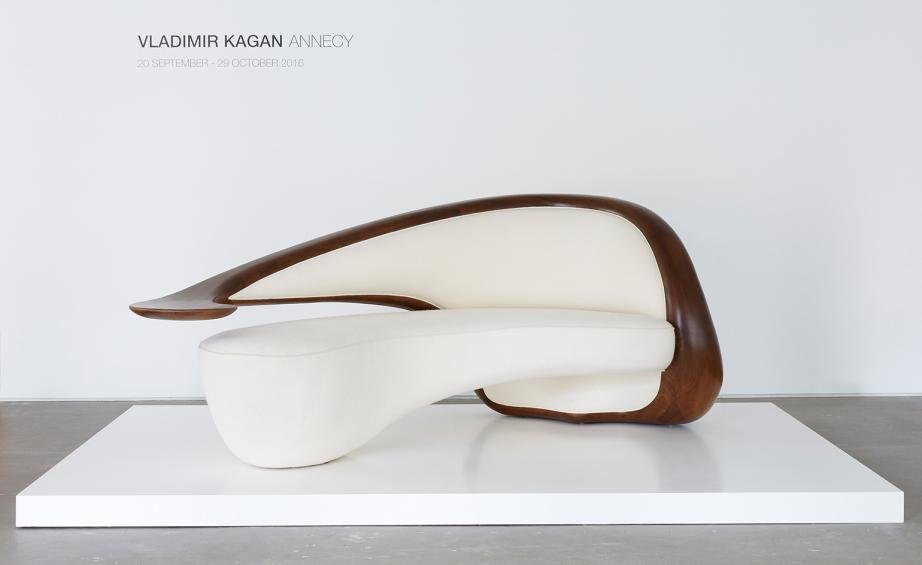









































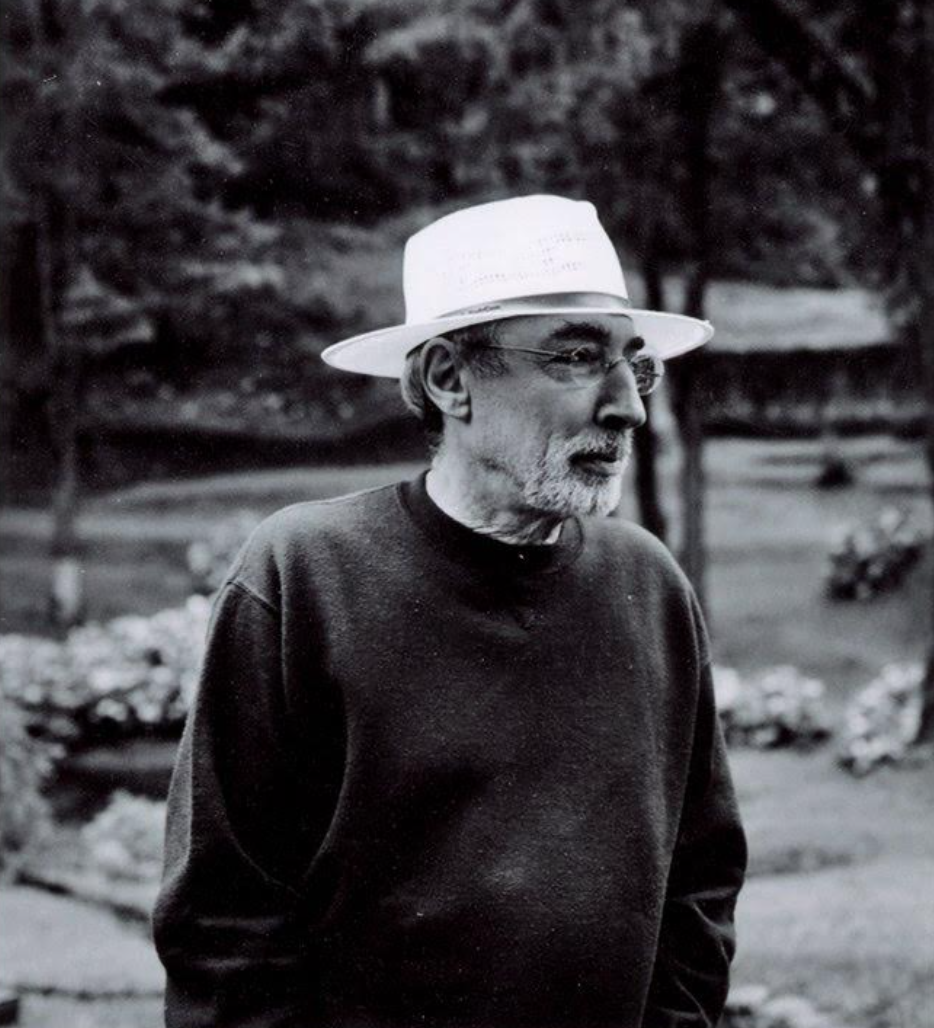
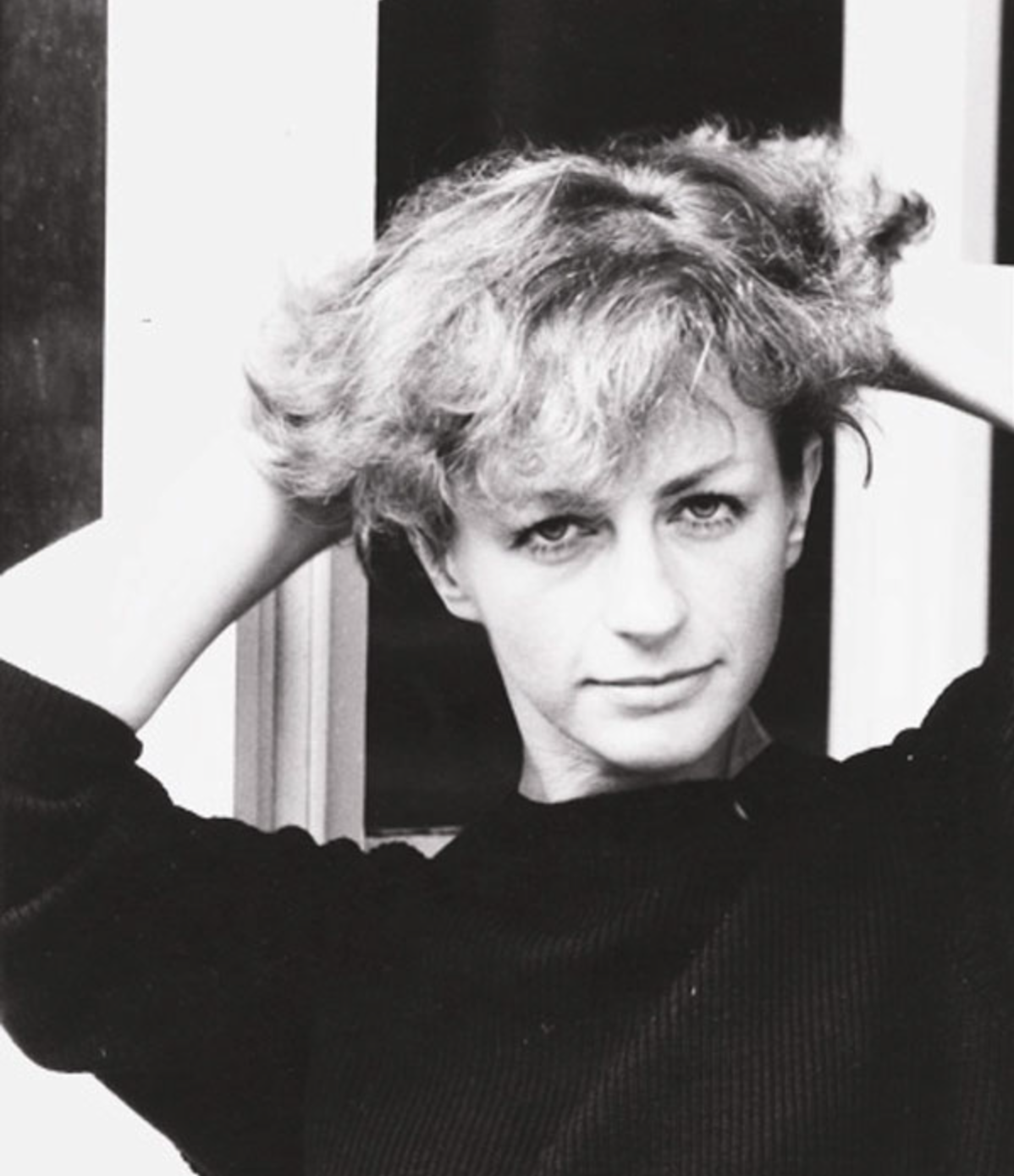













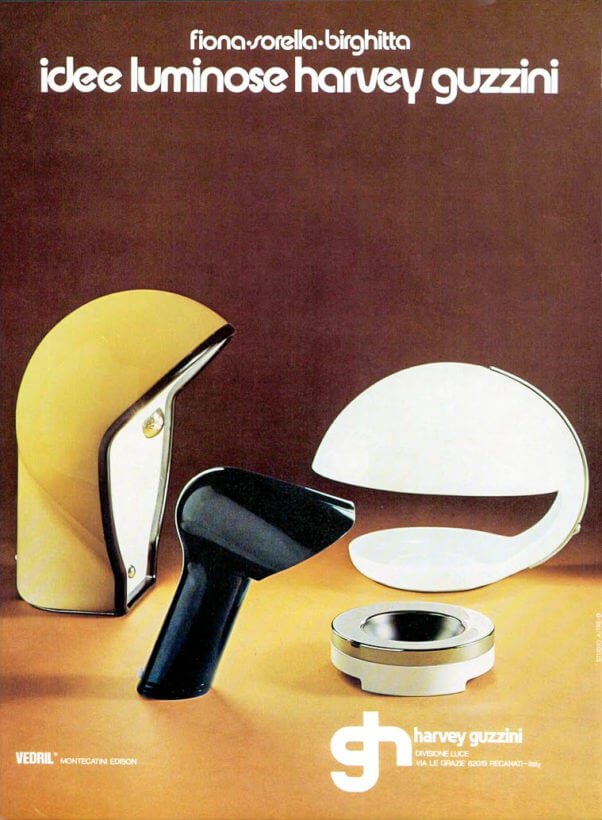


























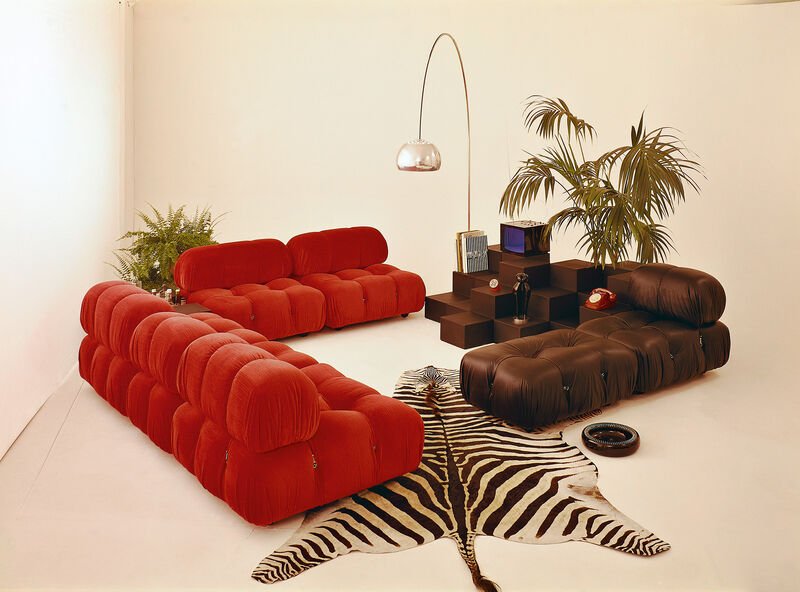




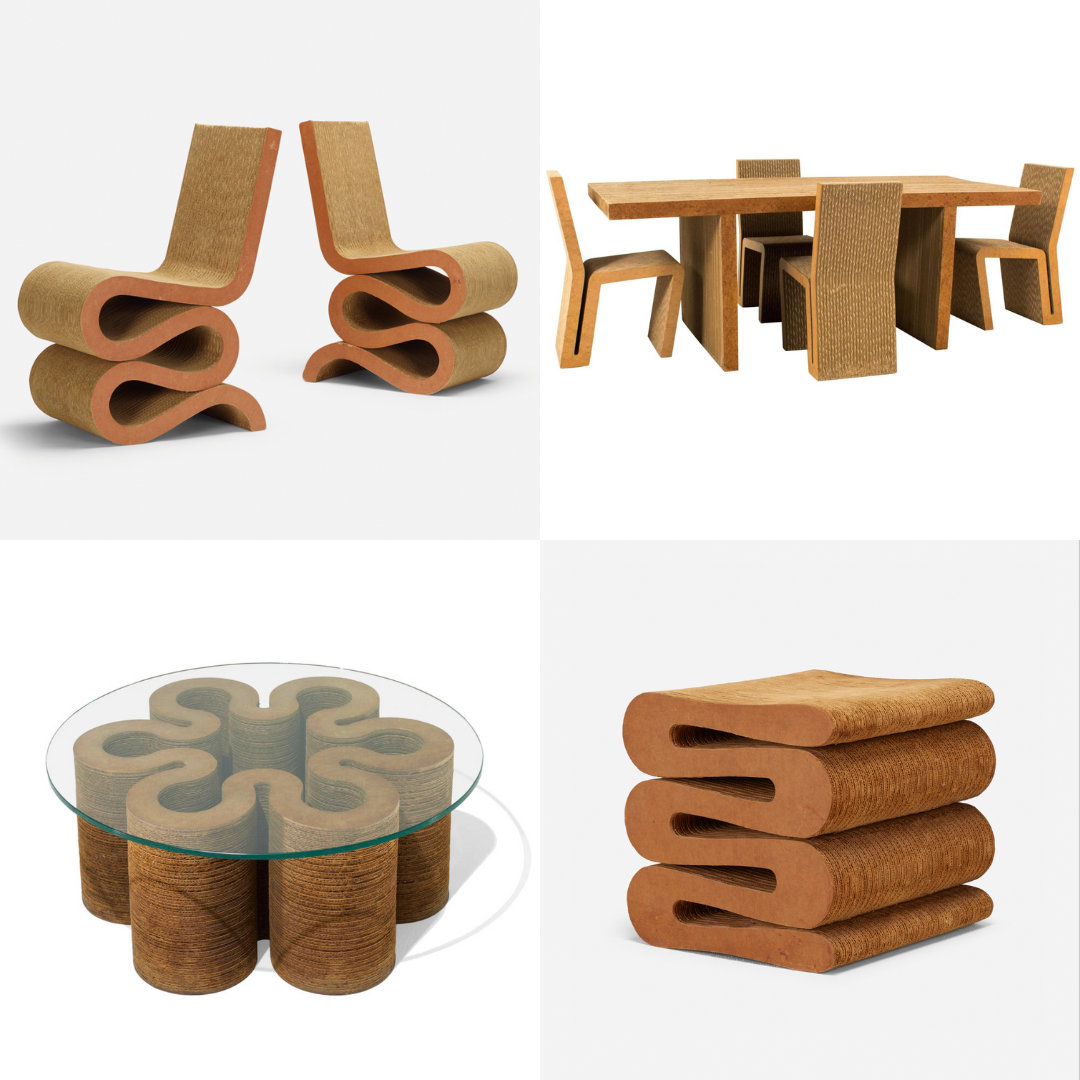



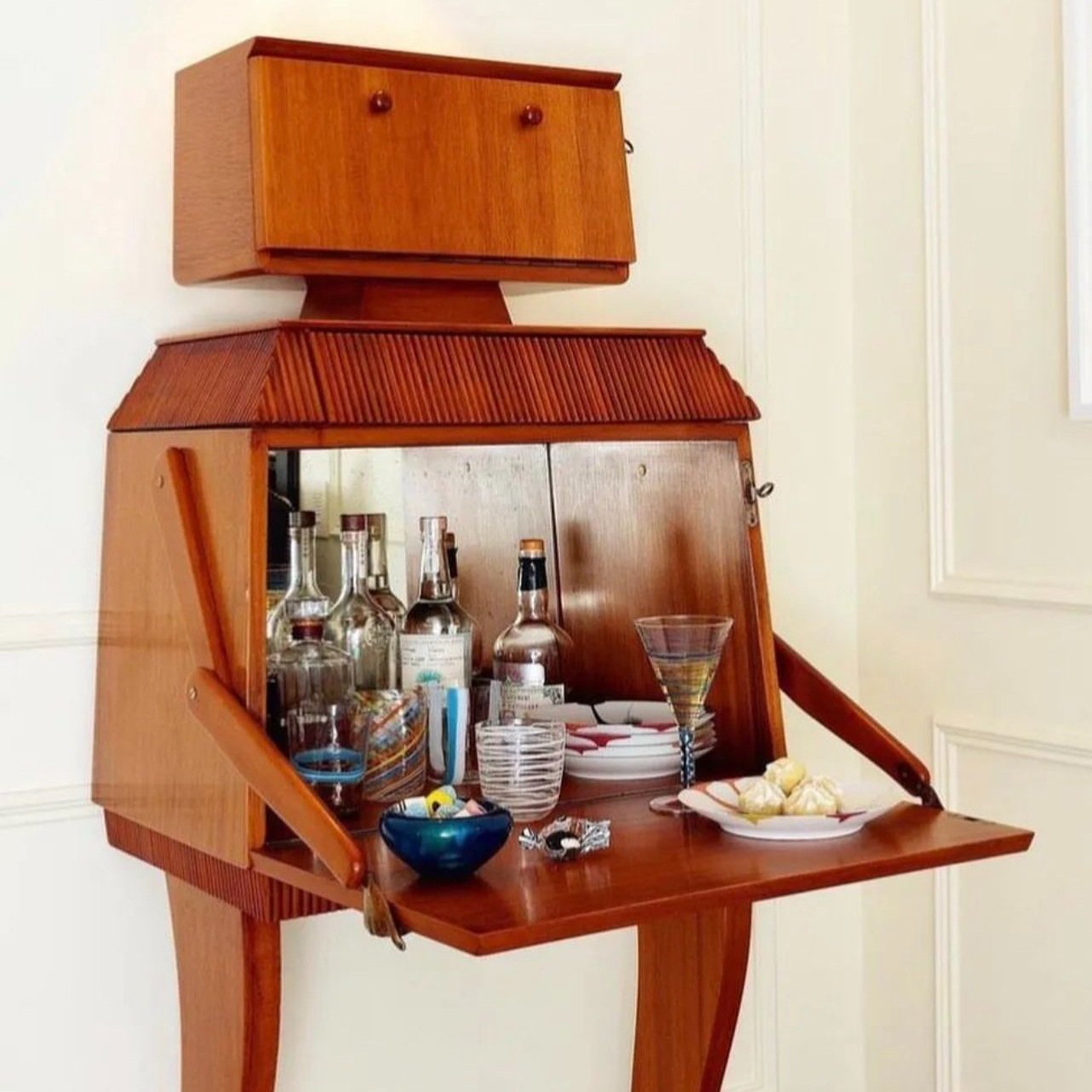
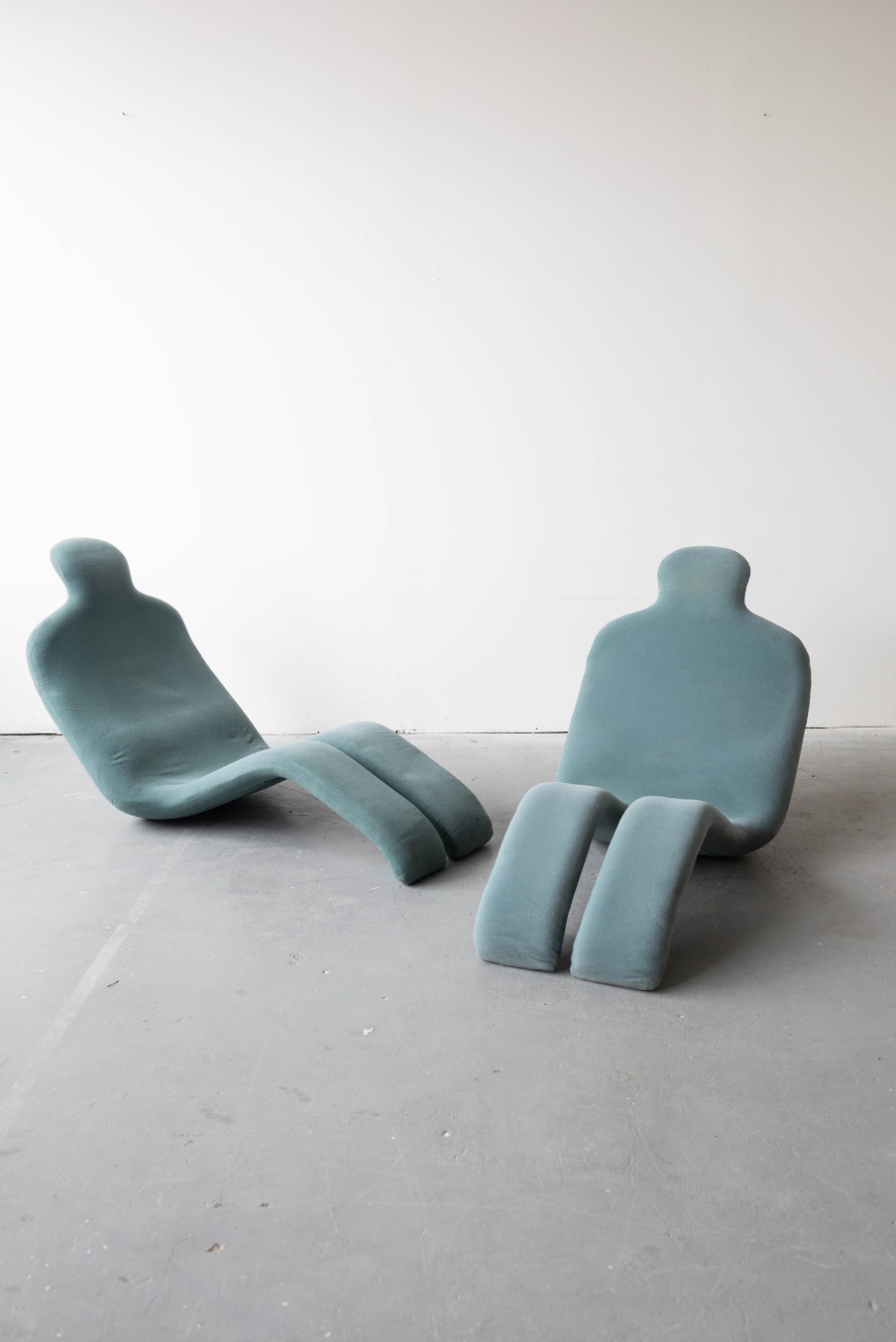
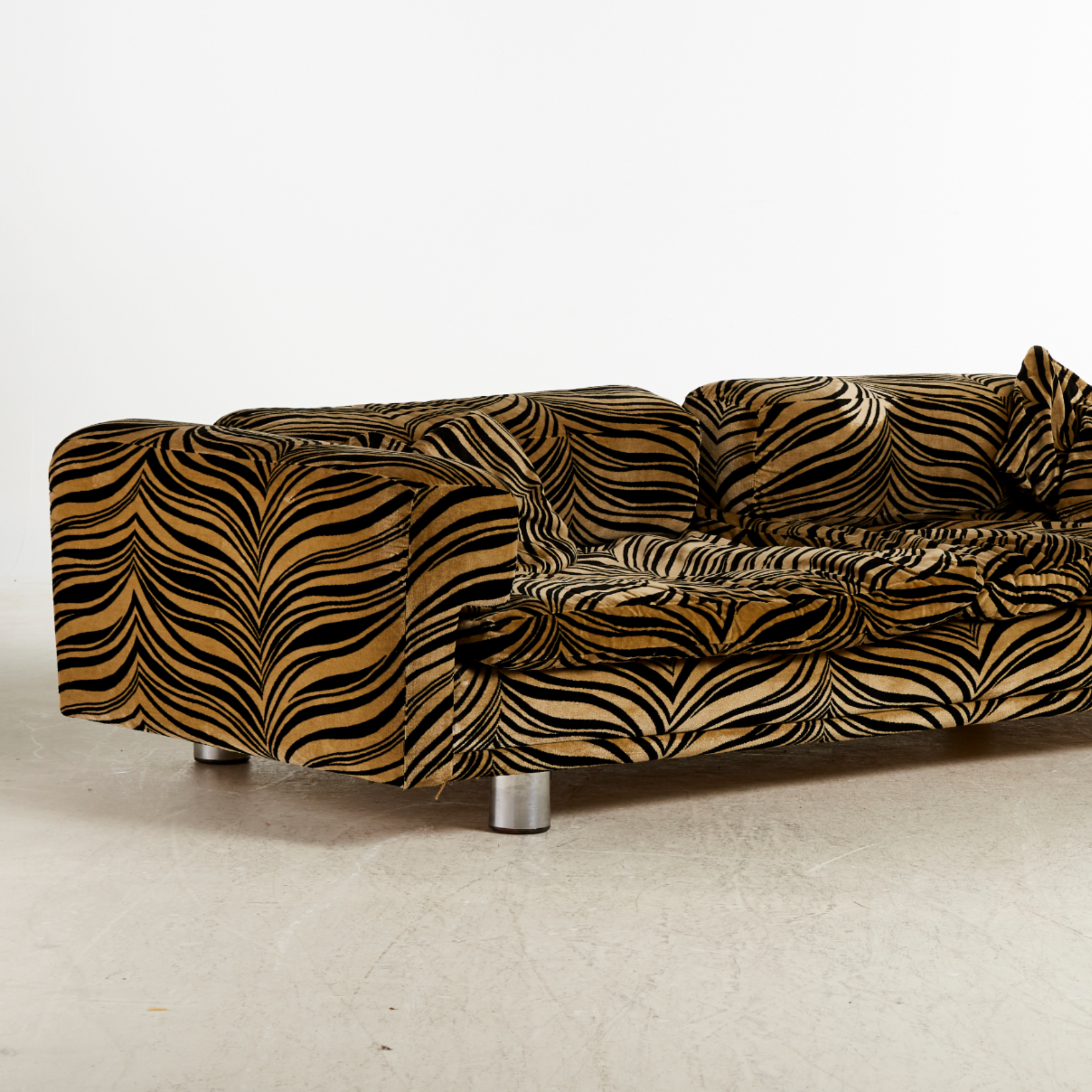
It’s no surprise that celebrities have the ability to acquire some of the most rare and incredible pieces of design. We are thrilled to see faces we look up to, enjoying vintage design as much as we do.